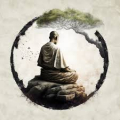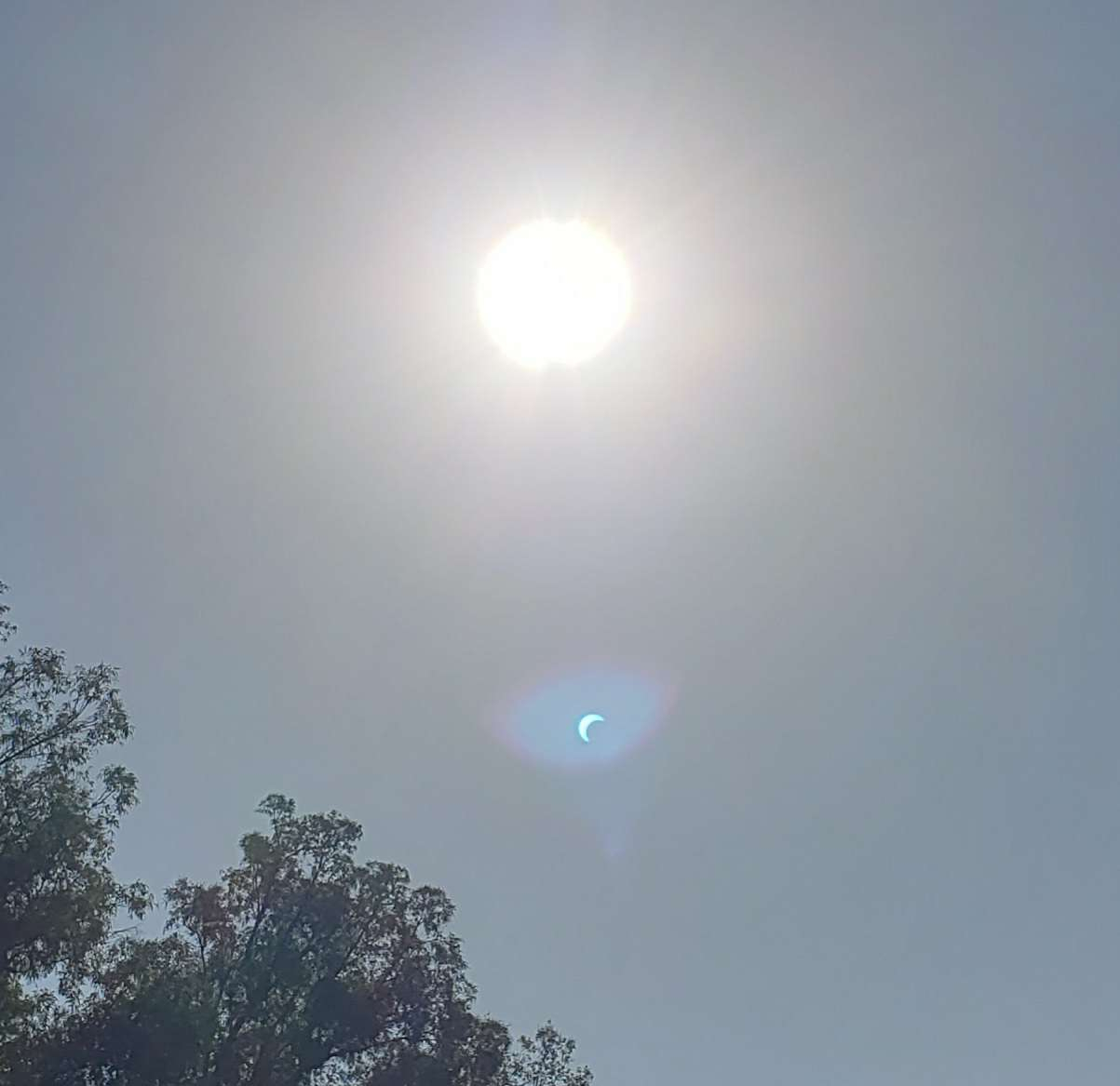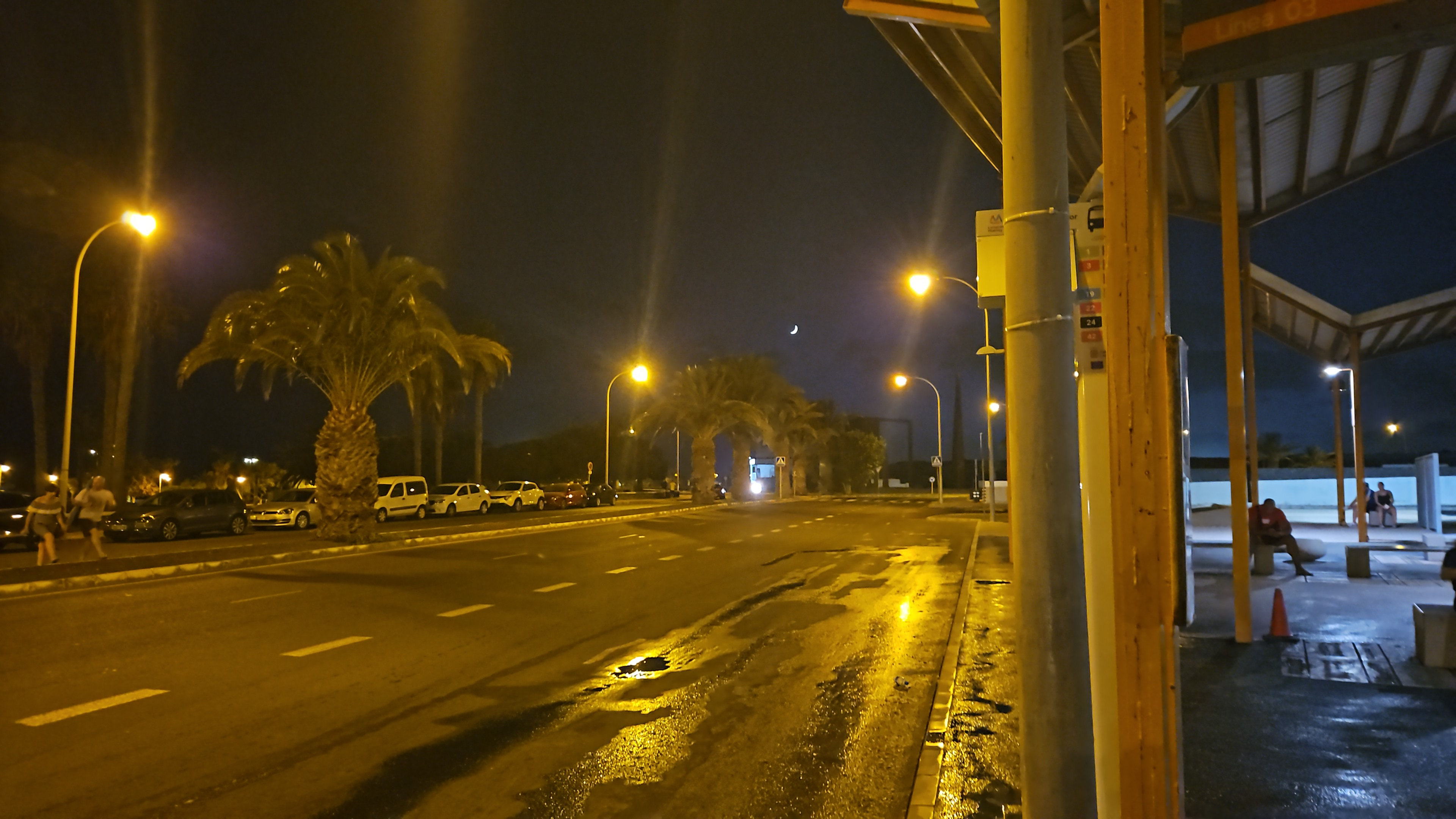Space - the final frontier
 marcitko
Veteran
marcitko
Veteran
Hello friends of the stars,
with the encouragement of @Kotishka and @Jeroen, here is a thread for all things related to Space, astronomy, star-gazing, cosmological contemplations, space-travel, the relationship between us humans and the Cosmos, and even astronomy-related films and books.
Why astronomy on a Buddhist forum? I find that astronomy has many connections to spirituality. Astronomy cultivates a cosmic perspective that at least intellectually puts our self and even humankind into perspective. It can foster a humanistic and ecological perspective, as can be observed by reports of astronauts and sky-gazers. The beauty of the cosmos can inspire a renewed appreciation for life. The paradoxes, scale, and weird things existing in the Universe can bring a sense of awe, appreciation, and pleasurable contemplation. The list goes on...
Why me? Since late elementary school I have been an amateur-astronomer and visual observer. For the last decade or so I have not gone observing much, since my observing buddy left the country and I don't drive, but the interest has always been there. I enjoy following along with space-related news, amateur astronomy resources such as forums, and talking about these issues with people. Unlike political science, which I studied, discussing astronomy always seems to light-up and bring people together.
One of the things that blows my mind in astronomy are the vast differences in size and scale. Here is a YT video that goes from the very small to the very large: 
Enjoy your stay 








Comments
Clap clap, applause, loud whistling! I’m a fan of astronomy and have been for a long time, I find it triggers my sense of wonder to see new things about the stars, whether that is pictures from the James Webb space telescope or the latest update on the NASA rovers on Mars.
A little while ago I was watching this episode of The Sky at Night, the venerable BBC series about astronomy. It’s about the New Horizons space probe which went to examine Pluto:
My first thought as I started to read was to link a scale of the universe video, which you already did. It is really mind blowing the scale.
I had the opportunity a few years ago to drive about 10 hours to see the full solar eclipse that passed across the US. It was pretty fantastic and worth the effort, I highly recommend doing it if anyone finds themselves with the chance.
https://newbuddhist.com/discussion/25095/eclipse-fever
When one looks out towards the heavens, one/consciousness is looking within..

Sitting on my terrace
On a cloudy night
I can still see four stars
Four is better than none
So I am content
But also displeased
Why not more?
Isn't it that I have this attitude to life?
Liking, but always wishing for more
Ha! Now through the big green pine tree
I see a big bright light!
If I fiddle around a bit, I see more
Here stops my poem
For I am already inside
Not liking my poem
But thinking of my NewBuddhist friends
The first stanza reminded me of how light pollution affects the night sky. A few times a year I'm in an area with very little light pollution and the difference in the night sky is amazing. I can see why past societies put so much emphasis on it, its like the ancient ipad!
https://darksky.org/resources/what-is-light-pollution/light-pollution-solutions/
This YouTuber tackles the problem of representing the scale of the universe in film.
Here is a global light-pollution map: https://www.lightpollutionmap.info
I find it interesting to observe how Europe is swamped in light pollution, how the US and China still have dark parts, and how Africa and Australia are very dark. Latin America is also more light polluted than I would have expected.
This number might be off, but I have read recently that light pollution is increasing by 10% annually. There is the obvious problem to professional astronomy and citizen star-gazing, but I believe an even greater issue is the effect on animals and plants, which rely on a steady day-night rhythm. Also on people's circadian rhythms.
It should be possible to have moderate and sensible lighting. But for some reason, I do not know of any larger cities or countries that have been successful. Maybe they did not try much.
As a rule of thumb we at least want so called cut-off lamps, which point downwards to the ground, and do not light up the sky. Light-pollution is also obviously needlessly costly both in dollar and carbon terms, since we need to produce and pay for all of this light that is escaping into the sky.
Interesting, I thought I was getting to pretty dark areas. But it looks like I'm only getting down to a 3, maybe a 4.
When I visit rural areas, if I'm driving at night you can see in the distance where the towns and cities are by the light beaming up from the area. It's even more pronounced if its cloudy out.
Seems a significant part of the USA is getting an eclipse on October 14th at 9.16 am. Here is an article with all the details… at least for this you will not need a telescope, lol.
https://www.extremetech.com/aerospace/octobers-ring-of-fire-solar-eclipse-will-peak-in-western-oregon
The Perseverance rover has been driving around on the surface of Mars since 2021, so a couple of years now, and it has been doing a lot of science. Ars Technica has done an in-depth article on the progress of the mission, you can read it here (lots of pretty pictures, I promise).
https://arstechnica.com/science/2023/09/the-perseverance-rover-is-reading-a-wet-history-of-mars/
It’s between a 6 and an 8 where I live. Plus the Netherlands is quite a wet country, so lots of cloud cover and so that’s not so good for doing astronomy. But I can still dream about the stars, lol.
Happy Autumn Equinox! This is the beginning of Autumn in the Northern and Spring in the Southern Hemisphere.
More info: https://www.space.com/autumnal-equinox-fall-begins-september-2023
The NASA mission Osiris-Rex is bringing back asteroid material, people are hoping to see a bit more of the solar systems history revealed.
The article via google translate
K2-18b has just been detected by the space web telescope as probably reading molecules of Dimethyl Sulfide readings in its atmosphere, that on earth, are only created through the existence of life. These results are pretty tentative and might take a year for corroboration but are the best scientific evidence yet for the possibility of life existing somewhere other than on earth.
https://www.youtube.com/shorts/qnW2_YsRAMw
Not sure why its not showing, its Dr. Becky talking about the Euclid space telescope's first images
So the Euclid Space Telescope is going to survey all of the sky with its wide-angle telescope in search of dark energy and dark matter? That’s a great mission, looking forward to the results.
4-10 October is World Space Week.
For a detailed list of public events, all over the world, go to the website and then to "WSW events" --> global map --> your country.
I am happy to have contributed in a small way, by organizing a lecture by a theoretical physicist at my former high-school.
It seems Amazon is going to compete with SpaceX’s Starlink on the direct-to-satellite internet market. Starlink is 4000 satellites, Amazon’s new Project Kuiper service is going to be about 3500, so that’s a lot of satellites. I was reading the story on Ars Technica…
https://arstechnica.com/space/2023/10/first-two-satellites-for-amazons-broadband-megaconstellation-launch-today/
The Sun seen by the Solar Orbiter within Mercury's orbit.

Pretty incredible looking when maximized and on highest quality setting.
Since I don't drive, today I had a rare opportunity to go observing to a dark sky location.
I was invited by a friend from my astronomical society who recently obtained the largest visual telescope in the country. It has a diameter of 20" or half a meter - which is close to the limit for the size of a transportable telescope. It requires the use of a small ladder, which is small enough that it is not a problem.
Observing with a "light-bucket" from a dark location has been an item on my bucket-list for some time. We were joined by two other members of the society and drove a bit less than 2 hours from my city. My friend is, as some would say, a "professional amateur", so he was a perfect guide and host.
It was a wonderful evening. There were a lot of free-flowing "OMGs", "WOWs", "Fucks", "Jesuses". The size of the telescope was a significant jump from the largest telescope I've otherwise ever observed, which is 12.5" or 33cm. I was expecting to be WOWed but on some classes of objects - primarily nebulae - I was WOWed beyond my expectations.
We observed several dozen eye-candy objects (the brightest and most beautiful in any telescope, mostly from the Messier catalogue) + a few very difficult objects just to test the telescope and have some "I saw it!" bragging-rights.
The weather cooperated but then clouded over around 11 pm. Might be for the good, it's half past one now, and I'll still have a productive day tomorrow.
Is the vastness of the universe equal to the vastness of of our own minds?
However, the more we discover out there , the more we must explore in here.
For where is the boundary between out there and in here?
After all, what is a Buddha but an ordinary person awakened.
Peace to all
This speculative idea was pretty mind blowing. The Goldilocks Universe.

I’m a big fan of Kurzgesagt!
Interesting article on Ars Technica about what signals life or a habitable planet, with special attention for what the new James Webb Space Telescope can see…
https://arstechnica.com/science/2023/10/what-would-signal-life-on-another-planet/
And I noticed this article about a shot taken by the JWST of a stellar nursery in the Small Magellanic Cloud (a nearby galaxy).
https://www.extremetech.com/science/webb-telescope-spies-stunning-star-formation-in-neighboring-galaxy
I chanced a photo of the eclipse. Couldn't really see it but the photo was kind of cool.

Nice photo of the eclipse! You got the eclipsed Sun and something looking like the Sun too (artefact?)!
The ‘Gagarin’s Start’ launchpad in Russia is being decommissioned. Historic place from which the world’s first astronaut lifted off into space is set to become a museum…
https://arstechnica.com/space/2023/10/lacking-funds-russia-will-turn-gagarins-start-launch-pad-into-a-museum/
Thank you @person for the interesting video on "rogue planets". I read about them a few months ago, but never before. Physicists have determined that 5/6ths of matter in the Universe is "missing". We know this because if we add up all of the known mass in our galaxy (stars, planets, asteroids, comets, dust and gas particles, etc.), then according to models, since there is not enough mass, the galaxy should disintegrate ie. everything should fly away into Space. And yet it does not, nor do other galaxies.
So, the only conclusion physicists have is that there is extra mass in there somewhere, but that we cannot see/detect it currently. They call this "dark matter". Some have "normal" hypotheses about what this dark matter could be (more of the same but that we just don't detect it currently), while others have "outlandish" theories in that this dark matter would be something totally different to our "ordinary" matter.
With the discovery of these "rogue planets" it could be that we've found a bit of this "missing matter". However, planets are small compared to stars, so the added matter is small as well. But, there could be other pieces of "normal" matter which we currently do not take into consideration such as much more dust/gas out there, or even more of these planets and similar bodies than we currently think, etc. The problem, however, is that most of the mass is tied up in stars, which are all accounted for. Or, really there could be a lot of "weird" matter that we've never detected. Anyway, all of this is very interesting and one of the cutting edges of astrophysics today.
Wishing you all.... This beautiful moon...
It seems Elon Musk’s SpaceX is aiming for one launch every 2.5 days next year, and is significantly undercutting other launch services in cost. They’re in the process of grabbing a huge chunk of the launch business.
A launch every 2.5 days is incredible. From what I've read (these numbers may be well off) SpaceX will increase total global launch capability by 1000x and will have 100x the launch capability of current global launch demand. So, the problem will be - what to launch? As these things go, this will probably turn out to be both a good and bad thing, but at least we do have the launch capability for serious space exploration and travel at reasonable cost.
If you build it, they will come. With the cost dropping like this there will be lots of new and previous ideas that were out of reach than can now be developed. No doubt like all progress it will improve our lives at one end while producing negative trade offs on the other, but over time the negative can be modified or improved while keeping the good.
It very well might be that within a few decades it will be possible for anyone to fly to Space for a reasonable price as a tourist, orbit Earth, experience zero gravity - and see Earth from Space. All of the accounts of astronauts that I've read describe a mind-expanding, deeply philosophic, and humanistic perspective that results from such an experience. Hence, this might be an amazing thing, a bit like travel expands our views, just on steroids.
I am totally sure that won't serve to increase our global carbon footprint or the amount of space trash polluting Earth's orbit. While all the poors struggle to survive in a world after another 1.5 degrees Celsius temperature increase, at least the rest of us will have cheaper trips to space thanks to the guy who tanked Twitter! #debbiedowner
The wonderful genius of Elon Musk:
https://thehill.com/policy/technology/4270360-elon-musk-offers-1m-to-wikipedia-if-theyll-change-their-name/
And people wonder why I'm so critical of the rich and capitalism?
Fascinating article about kilonova’s and how the heavier elements are formed.
https://www.theguardian.com/science/2023/oct/25/creation-of-rare-heavy-elements-witnessed-in-neutron-star-collision?CMP=Share_iOSApp_Other
Thank you @Jeroen, that was a very interesting read. As the article states, everything heavier than iron cannot be made by stars using fusion - but is rather made in supernovae and... as I've learnt today kilonovae for the even heavier elements. Our human body contains elements heavier than iron in small amounts - so for us to be, there must have been a supernova somewhere close by. The Universe is truly incredibly interesting. Thank you again.
This was some fun speculation.

The Euclid space telescope’s first images released…
https://www.extremetech.com/science/euclid-telescopes-amazing-first-images-released
It’s a 1.2m diameter space telescope at the Earth-Moon LaGrange point, intended to survey large swathes of the sky so it doesn’t have such a narrow small-area view as the James Webb.
Thanks @Jeroen, I will read up on the Euclid Space Telescope. Usually, space-based telescopes have huge mirrors and long focal-lenghts, hence VERY small fields of view. Some go the other route, as you've mentioned, attempting to capture wider fields, all the way up to "all-sky-surveys".
The photo above is of the Horsehead Nebula in Orion. On the photo above it reminds more of a decapitated female figure, but usually it does look more like the head of a horse. It is a "dark nebula", non-illuminated gas and dust that obscures the view beyond, hence we normally see it by noticing that we don't see anything where there should be something (ie. the blue thing above - an illuminated nebula). The Horsehead Nebula is probably the most famous "challenge" object for visual amateur astronomers - it is VERY difficult to see but is easily photographed even with amateur equipment.
This counts as space related in my mind. Take your favorite psychedelic and sit back for a trip.

Here's another mind expanding interactive scale of the universe.
https://scaleofuniverse.com/en
I've been observing the Moon and stars lately. I'm still so clueless. Perhaps a compass would help?
This might be a bit obvious..but just in case...
Have you considered the "Sky Guide" (I think mine was through the Apple store) that allows your phone to identify stars, constellations, major satellites or planets that you point it at. Because it is GPS-guided, it shows you where they should be, even if local weather or our planet's mass prevent direct viewing.
@how 's suggestion is excellent and from what I gather the way most people these days learn the constellations and recognize the planets. It's as easy as pointing your phone at the sky and "seeing" what it's pointing at. But your phone must have a gyroscope, which most phones have these days, I just learned of this requirement because mine does not.
For a solution without technology, you can get a "planisphere" (made for your region) - these should not cost more than 5-10$ and are very easy to use and work year-round at all times of day/night.
The easiest way to learn the constellations is to first learn one that is easily recognizable at most times of the year, you probably already know some (In the Northern hemisphere the most recognizable ones are the Big Dipper ie. Ursa Major, Orion, Cassiopeia, which should also be visible in your part of the world which is a bit more South if I remember correctly).
Then, starting from this constellation we "star-hop" using imagined geometrical figures. "I know the W shape of Cassiopeia, taking these two stars of Cassiopeia and extending their distance in a straight line around 5 times, I come to Andromeda". In this way one can learn many or all of the constellations. Once you recognize a constellation two or three times it becomes second-nature to recognize it. But, yes, in our present skies sometimes it's difficult to see enough stars even to recognize the constellations.
For illustration, here's one such "mnemotechnic" that I use pretty much every time I'm looking at that part of the sky just to orient myself faster. If you know how to recognize the Big Dipper (Ursa Major) then there is "Arc to Arcturus and speed on to Spica". Arcturus is the brightest star of Bootes and Spica of Virgo and both are very bright. So now you just check the dimmer stars of the two constellations with a map of some kind and voila, now you know three constellations. Rinse and repeat until you know the whole sky or as much as you want to know Some kind of introductory book, maybe from a library, works very well for astronomy. Binoculars are also nice to start, maybe from home or from a relative or a flea-market before you really know that you will use it a lot.
Some kind of introductory book, maybe from a library, works very well for astronomy. Binoculars are also nice to start, maybe from home or from a relative or a flea-market before you really know that you will use it a lot.
The thing is, I’m quite near-sighted, which means that if I peer at the sky with my naked eyeball I see something quite blurry, even if the light pollution here were not the big issue that it is.
You can use your eyeglasses when watching the stars, including through binoculars and telescopes, no problemo.
Actually, the Last Frontier is alsi the First Frontier - The Mind.